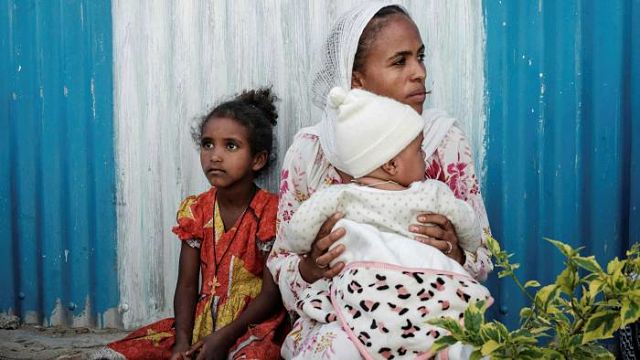 (Getty Images)
(Getty Images)
By Zeinab Badawi
Ethiopians constantly tell me how much they detest being seen as a conflict and famine-ridden country. Parts of the nation, together with Eritrea, once made up the kingdom of Axum, which has been described as one of the four greatest civilisations of the ancient world. Ethiopia has a written language and coinage dating back nearly 2,000 years. Its history is full of glory, heroism and victories against foreign invaders.
It is also the only country in Africa that has never been colonised. In 1963, the capital, Addis Ababa, was chosen as the headquarters of the Organisation of African Unity, today’s African Union. Ethiopia hosts the United Nations Economic Commission for Africa and is an international hub. The palpable pride Ethiopians have in their past transcends different ethnic backgrounds. Indeed, the country’s heritage of independence is a source of great esteem for many Africans, including those in the diaspora.
My great-grandmother was Ethiopian, though my family are Sudanese. Orphaned during a raid on the Ethiopian Sudanese border, she was adopted by an Egyptian merchant. My mother recalls her concern during the second world war when Ethiopia was occupied by the Italians. Unable to read Arabic, she would ask her grandchildren to scan the newspapers and update her about the Ethiopians’ resistance efforts.
Ethiopia’s descent today into a spiral of conflict and suffering in the northern Tigray state make depressing reading. Five million people need emergency assistance with 400,000 at risk of starvation. Thousands have been killed, nearly two million displaced and accounts of severe human rights abuses are widespread.
The conflict between the government and the Tigrayan People’s Liberation Front (TPLF), which began last November, was initially described by prime minister Abiy Ahmed as a “law enforcement operation” after an attack on a federal army base. The war has since led to numerous accusations and counteraccusations. Federal forces recently withdrew from Mekelle, the Tigrayan capital, leaving it once again in the hands of the TPLF. Their conditions for a ceasefire suggest they may even be heading towards independence as their ultimate goal.
Last week the UN Security Council held its first open session on the crisis, calling on all sides to commit to an indefinite ceasefire and allow humanitarian access to the region. This was critical and long overdue. But the international community must also focus on the wider challenges in Ethiopia: namely that there are several other opposition forces which could become radicalised.
The Tigrayans account for 6 per cent of Ethiopia’s 112m people. Instrumental in ousting the dictator Mengistu in 1991, they subsequently dominated the coalition government for nearly 30 years. But the Oromo, who make up 35 per cent of the population, also have a century’s long conflict with the central government. If not dealt with promptly, this too could provoke the disintegration of Ethiopia. And among the Amhara, who account for 27 per cent of the population, factions and militias blame the government for intensifying oppression and are growing extremely restless. Abiy has so far failed to put a lid on any of these tensions.
The twice-delayed elections to choose 547 federal parliament members have either been boycotted or postponed in parts of Oromia and Amhara and put off indefinitely in Tigray. Given the lack of a credible opposition, the result of June’s poll in due course will almost certainly deliver victory to the prime minister’s Prosperity Party, securing his position as head of government. Abiy should use this as a platform to stop the fighting and call for round-table discussions with all his opponents. He must pursue a path to genuine power-sharing and inclusive development, so that no group feels marginalised politically or economically. His recent comments that Ethiopia needs peace to develop provide a glimmer of hope.
As the international community considers how to respond to the tragedy in Tigray, it should also apply pressure to each of Ethiopia’s warring parties in order to get them to come to the table. It must be made clear that there can be no military solution to the country’s challenges.
Sadly, Ethiopia is once again becoming synonymous with war and suffering. Its people need a present and future of which they can be as proud as they are of their past. I wonder what my great-grandmother would think if she could see that the conflict raging in her country today is not between Ethiopians and their would-be European subjugators but between her own compatriots.
—
Join the conversation on Twitter and Facebook.

























